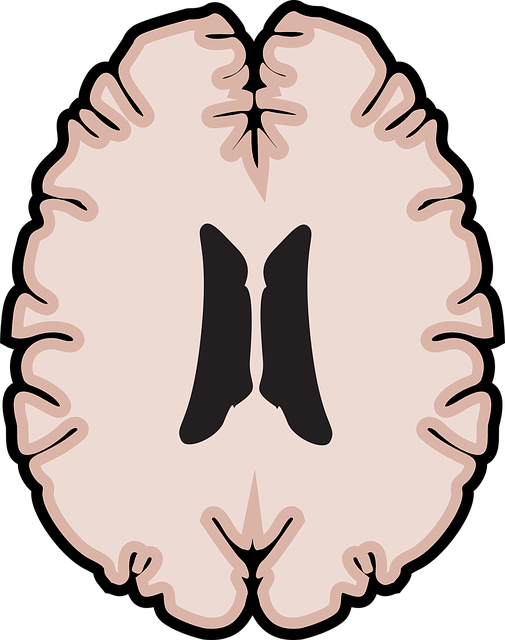Therapy tailored to adolescent teens' spiritual-religious beliefs and mental health struggles is crucial for holistic healing. Integrating mindfulness, crisis intervention, and open communication creates effective treatment plans. This approach enhances emotional well-being, especially with structured routines and school policies that promote inclusivity. By addressing unique perspectives and providing personalized coping mechanisms, mental health professionals can significantly improve outcomes for teens navigating spiritual and mental challenges.
Mental illness diagnosis and treatment navigation can be a complex process, especially for adolescent teens. This article provides a comprehensive guide to understanding mental health diagnoses, navigating therapy options, and fostering supportive environments at home and in schools. We explore the role of spiritual and religious beliefs in treatment, offering insights tailored for parents and caregivers. Through success stories highlighting guidance and overcoming challenges, we aim to empower families facing mental health issues in teens, emphasizing the importance of holistic care that includes spiritual-religious considerations in therapy for adolescent teens.
- Understanding Mental Health Diagnoses for Adolescent Teens
- The Role of Spiritual and Religious Beliefs in Treatment
- Navigating Therapy Options: An Overview for Parents and Caregivers
- Building a Supportive Environment at Home and School
- Success Stories: Overcoming Challenges with Guidance
Understanding Mental Health Diagnoses for Adolescent Teens

Understanding mental health diagnoses is a crucial step for adolescent teens and their families navigating treatment options. Many teens may experience symptoms of various mental health conditions, such as depression, anxiety, or bipolar disorder, during their formative years. These disorders often present unique challenges due to the developing nature of the brain during adolescence. A comprehensive evaluation by qualified healthcare providers, including psychiatrists, psychologists, or licensed therapists, is essential to accurate diagnosis. This process involves detailed interviews, behavioral observations, and sometimes medical tests to rule out other potential causes.
When exploring therapy for adolescent teens, integrating spiritual-religious issues into treatment plans can be beneficial. Many teens find meaning and coping strategies through their faith or cultural practices. Incorporating self-awareness exercises that encourage reflection on personal beliefs and values can enhance the therapeutic process. Additionally, Stress Management Workshops organized by reputable organizations can equip teens with valuable skills to manage stressors and promote overall well-being. Healthcare Provider Cultural Competency Training ensures that professionals are equipped to address diverse adolescent populations effectively, taking into account cultural nuances and beliefs related to mental health.
The Role of Spiritual and Religious Beliefs in Treatment

Spiritual and religious beliefs play a significant role in navigating mental illness diagnosis and treatment for adolescent teens. For many individuals, their faith serves as a guiding force that influences their understanding of health, healing, and well-being. Incorporating spiritual-religious aspects into therapy can create a more holistic approach to care. This integration allows therapists to address the teen’s unique perspective on their condition, fostering a deeper sense of connection and empowerment. For instance, mindfulness meditation, rooted in many religious traditions, has gained prominence as an effective tool for managing symptoms of anxiety and depression, thereby enhancing traditional therapy methods.
Mental health professionals can facilitate meaningful discussions around these beliefs to develop tailored treatment plans. By understanding the patient’s spiritual-religious framework, healthcare providers can seamlessly incorporate practices such as prayer, sacred texts, or rituals that align with their values. Moreover, conflict resolution techniques can be adapted to address potential tensions between religious doctrines and mental health interventions. Equipping teens with risk management planning tools that consider their spiritual beliefs equips them to navigate challenges and maintain stability throughout treatment.
Navigating Therapy Options: An Overview for Parents and Caregivers

Navigating therapy options can be challenging for parents and caregivers supporting adolescent teens experiencing mental health struggles. With various treatment approaches available, understanding different therapeutic modalities is essential to make informed decisions. Many professionals now incorporate spiritual or religious considerations into care plans, recognizing their potential impact on a teen’s well-being. Therapy for adolescent teens often involves exploring personal challenges, developing coping strategies, and fostering resilience.
Compassion cultivation practices have gained popularity as an effective method to build emotional regulation skills and enhance overall mental flexibility. Additionally, confidence-boosting techniques can empower teens to navigate social interactions with greater ease. Crisis intervention guidance is crucial in managing acute situations, providing immediate support, and preventing further escalation. By combining these approaches, parents and caregivers can collaborate with therapists to create a holistic treatment plan that addresses both the teen’s current needs and long-term mental health goals.
Building a Supportive Environment at Home and School

Creating a supportive environment is pivotal for adolescents navigating mental illness. At home, fostering open communication where teens feel comfortable discussing their feelings and experiences is essential. This can involve setting aside dedicated time for conversations, actively listening without judgment, and validating their emotions. Incorporating healthy routines such as structured bedtimes, regular meals, and consistent exercise routines can also contribute to a sense of stability and improve mood management. Schools play a crucial role in supporting adolescent mental wellness through implementing inclusive policies and providing resources like counseling services or peer support groups.
Addressing spiritual-religious issues is another facet of building a supportive network. Respecting and understanding the teen’s beliefs, whether they involve therapy for adolescent teens with spiritual or religious undertones or simply finding solace in personal beliefs, can offer a sense of comfort and coping mechanisms. Burnout prevention strategies, such as promoting mindfulness practices or encouraging participation in hobbies and social activities, can also contribute to overall mental wellness and help manage stress levels.
Success Stories: Overcoming Challenges with Guidance

Many individuals facing mental illness diagnosis often find their way to recovery through the support of dedicated professionals and personal resilience. These success stories serve as a beacon of hope, highlighting the transformative power of guidance tailored to individual needs. For adolescent teens grappling with spiritual-religious issues intertwined with their mental health, therapy becomes a sanctuary where they can explore their beliefs while learning coping mechanisms.
Embracing practices like mindfulness meditation, integrated into certain therapeutic approaches, equips teens with emotional intelligence – a crucial asset for navigating life’s challenges. This holistic approach, combining spiritual understanding and evidence-based treatment, is not only effective but also empowering. Success stories in mental illness diagnosis and treatment navigation underscore the importance of advocacy within mental health policy analysis, pushing for broader access to these transformative resources.
Mental illness diagnosis and treatment can be complex, especially for adolescent teens. By understanding mental health conditions specific to this age group, incorporating spiritual and religious beliefs into treatment plans where relevant, exploring diverse therapy options, fostering supportive environments at home and school, and learning from success stories, parents and caregivers can effectively navigate this challenging journey alongside their teen. Integrating holistic approaches that consider both emotional well-being and spiritual-religious issues can significantly enhance the effectiveness of therapy for adolescent teens.














